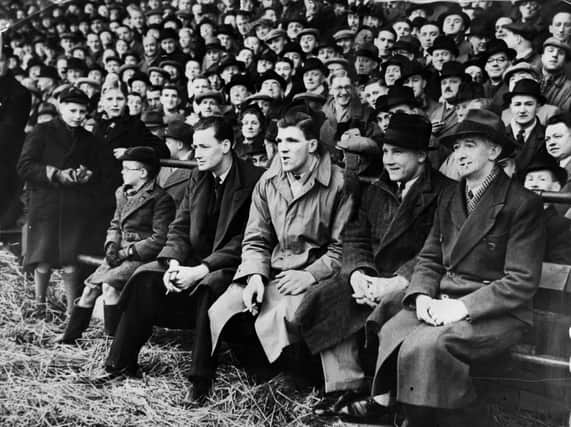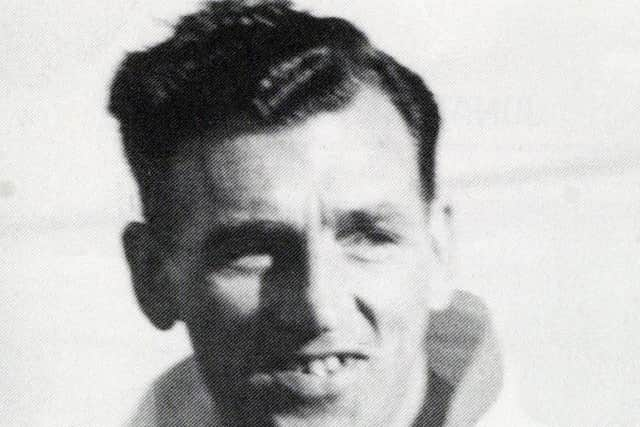Leeds Rhinos Nostalgia: Two world wars were not enough to halt rugby league


The code was played throughout both the first and second world wars, when rules on player registration were relaxed and some of the most famous names in rugby league history turned out for Leeds as “guest” stars.
The 1914-15 Northern Union season kicked off on September 5, just a month after hostilities began. Huddersfield were the sport’s dominant force at the time and their ‘Team of All the Talents’ won all four cups that season: Yorkshire Cup, Challenge Cup, Yorkshire League and Championship.
Advertisement
Hide AdAdvertisement
Hide AdLeeds held the Fartowners to a 5-5 draw at Headingley in February, one of only five games Huddersfield failed to win in the whole campaign, but were hammered 35-2 when the sides met again in the Championship final at Wakefield’s Belle Vue.


Competitive rugby was suspended at the start of the 1915-16 season, so there were no cup competitions or play-offs, though a table was compiled, known as the Emergency League Competition.
Leeds played 32 matches, winning 26 and drawing one and topped the ladder from September until the penultimate game when Dewsbury won 10-0 at Headingley to overhaul them.
Huddersfield’s Harold Wagstaff and Albert Rosenfeld featured as guest players for Leeds that season.
Advertisement
Hide AdAdvertisement
Hide AdIt was a similar story in 1916-17 when Leeds finished runners-up in the table behind Dewsbury, who sealed top spot thanks to an Easter Monday win at Headingley. Both those sides played 31 games. The league table was decided on percentage and Barrow, who were fourth, completed only 17 fixtures.
With most able-bodied men of playing age having joined up, there was a shortage of players by the start of 1917-18 so teams were reduced to 12-a-side.
Leeds won their first eight matches and finished with 21 victories from 32 games.
The first four months of the 1918-19 season were played under emergency rules but a county league competition was reintroduced in January, two months after the armistice, with teams restored to 13-a-side. Leeds finished as runners-up to Hull, their first peacetime fixture being a 38-0 win over Hunslet at Headingley on November 16.
Advertisement
Hide AdAdvertisement
Hide AdIn the summer of 1939 Leeds paid Hunslet a large sum to sign Welsh stand-off Oliver Morris. The transfer fee included a war clause, with Leeds agreeing to pay more if hostilities did not break out within a certain time.
Morris played in the first three games of the season, scoring five tries, including a brace in a 36-4 home win over Bramley on September 2.
The following day, war was declared.
Leeds beat Castleford and Dewsbury in friendlies and a Yorkshire League (War Emergency) competition began on September 30.
Guest players for the Loiners during World War Two included Gus Risman and Eric Batten. Fear of air raids meant crowds were initially limited to 8,000, though that was eased as the conflict continued.
Advertisement
Hide AdAdvertisement
Hide AdLeeds were back-to-back wartime Challenge Cup winners, beating Halifax 19-2 at Odsal in the 1941 final and 15-10 on the same ground a year later, Morris playing in both.
They reached the final again in 1943, but this time it was played over two legs. Dewsbury won 16-9 at Crown Flatt and Leeds’ 6-0 victory at Headingley two days later was not quite enough for them to retain the trophy.
One unique fixture was played 80 years ago last week, on March 15, 1940 when Leeds beat Wigan – who had been given special permission to enter – 9-3 in a Yorkshire Cup first-round tie.
Morris went on to score 44 tries and 33 goals in just 61 appearances for the Loiners, but – fighting as a lieutenant in the 1st battalion of the Welsh Regiment – was killed in action in northern Italy in 1944.
Comment Guidelines
National World encourages reader discussion on our stories. User feedback, insights and back-and-forth exchanges add a rich layer of context to reporting. Please review our Community Guidelines before commenting.